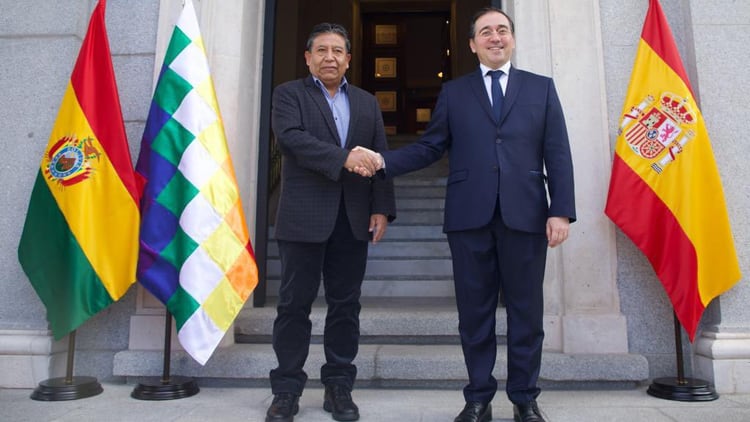The Diplomat
A delegation of the European Parliament committee investigating the alleged use of the Pegasus spying program by Morocco will travel on Monday and Tuesday to Madrid to learn “first hand” through government and parliamentary representatives what systems exist in Spain for the control and prevention of “any illegal use of spyware”.
As informed yesterday by the European Parliament office in Madrid, the delegation will be formed by nine MEPs, headed by the president of the investigation committee, Jeroen Lenaers (EPP, Netherlands) and including, among others, the Spaniards Juan Ignacio Zoido (EPP), Diana Riba i Giner (Greens/EFA), Ibán García del Blanco (S&D) and Jorge Buxadé (ECR). The same delegation carried out previous missions to Israel, Poland, Greece, Cyprus and Hungary.
The aim of the delegation is to meet with representatives of the Government, members of the Defense Committee of the Congress, as well as victims of espionage such as the President of the Generalitat of Catalonia, Pere Aragonés, and the Catalan Minister of Foreign Action, Meritxell Serret. Meetings are also scheduled with members of the Pegasus investigation commission in the Catalan Parliament, a representative of the Ombudsman’s Office, NGOs dedicated to the defense of fundamental rights and journalists. The visit will conclude on Tuesday with a press conference at the European Parliament Office in Madrid.
“We are traveling to Spain to better understand the checks and balances in place in Spain to prevent any illegal use of spyware,” said Jeroen Lenaers. “During the visit, we hope to hear first-hand from government representatives and Parliament what systems are in place for the purchase and authorization of programs such as Pegasus,” he continued.
“We also want to meet with victims and hear their testimonies,” he added. “Although this is a complicated time due to the national political calendar, it is important for our investigation to exchange views with all relevant actors before the end of our mandate in a few months,” he concluded.
For her part, the inquiry’s rapporteur, Sophie In ‘t Veld (Renew, Netherlands), stated that the trip to Spain takes place “in the framework of a Europe-wide investigation into the use, and abuse, of spying programs.” “There are outstanding questions, to which we hope to get answers. To that end, we trust that as many government representatives as possible will receive us. This would be of great help to the investigation,” she said.
The European Parliament’s inquiry committee has commissioned studies, organized hearings with experts and sent delegations to Israel, Poland, Greece, Cyprus and Hungary to investigate the use of Pegasus and similar programs. On November 29, 2022, the committee analyzed the situation in Spain at a public hearing in Brussels in preparation for its visit to Madrid. The commission’s findings will be summarized in a report that will include recommendations for further action and will subsequently be submitted to the plenary of the European Parliament for discussion and vote. Amendments to both documents can be tabled by all members of the committee. The vote in committee will take place in the spring.
The delegation’s visit comes just a few days after a Madrid court of first instance dismissed a lawsuit by Morocco against Ignacio Cembrero, the El Confidencial journalist who reported on Rabat’s involvement in spying on the cell phones of several Spanish leaders (among them Pedro Sánchez, the Minister of Agriculture and former ambassador to Rabat, Luis Planas, the former Minister of Foreign Affairs, the former Minister of Foreign Affairs, the former Minister of Foreign Affairs and the former ambassador to Rabat, Luis Planas); the former Minister of Foreign Affairs, Arancha González Laya; and the Minister of Defense, Margarita Robles), and even his own personal cell phone, through the Pegasus program.
Cembrero had, for the first time, the conviction of being spied on when he read two of his WhatsApp messages in an article entitled “Cembrero, the ectoplasm of the Moncloa”, signed by Hassan Alaoui, director of Maroc Diplomatique, a publication sympathetic to the Moroccan authorities. They were messages exchanged with high-ranking officials of the Spanish Government regarding the crisis with Morocco. The case has become a “hot potato” for the Spanish government, which has also done everything possible to get rid of it so as not to anger Rabat in the midst of the process of recovery of relations with its southern neighbor.







